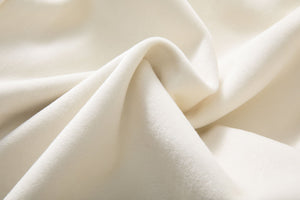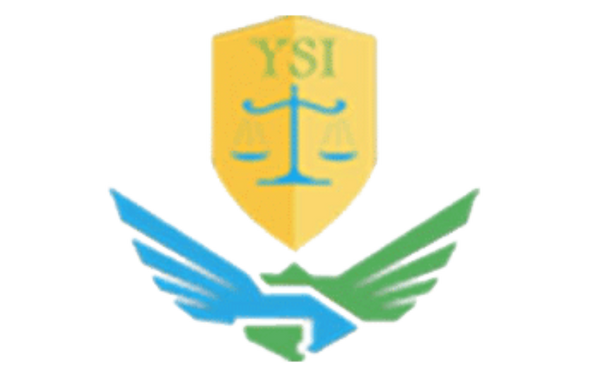
Fabric inspection | Requirements and methods for inspecting plain cotton canvas | Inspection and factory verification service
As a representative product of natural and environmentally friendly fabrics, the quality of pure cotton canvas directly affects the performance and safety of the finished product. To ensure that the products meet the standards of the textile industry and the requirements of quality certification, establishing a professional inspection process is of vital importance. This article will systematically introduce the inspection standards, testing methods and certification requirements for pure cotton canvas, providing a complete quality control guide for enterprises.
I. Quality Grade Evaluation and Certification System
1.1 Grade Classification Certification Standards
Premium Grade: Highest Quality Grade Certification
First-class product: Certified to standard commercial grade
Second-grade product: Basic qualification level certification
Non-conforming product: A product that does not meet the certification standards.
1.2 Quality Evaluation and Certification Process
Internal quality is verified and certified by batch inspection.
Appearance quality is inspected and certified by batch.
Comprehensive product certification follows the principle of selecting the lowest item.
Establish a complete quality traceability system
1.3 Packaging Specification Certification
Standardization Certification of the Contract between the Supplier and the Buyer
Weight measurement standardization verification (standard 40m/pair)
Professional assessment of packaging integrity
II. Internal Quality Inspection Certification Standards
2.1 Density Index Certification
Inspection shall be conducted in accordance with the FZ/T10003 standard.
Accurate calculation and certification of density deviation rate
Data rounding and standardization processing
2.2 Area-based Quality Certification
Dry without Pulp Quality Professional Test
Conduct inspection and certification in accordance with the FZ/T10026 standard
Accurate assessment of quality deviation rate
2.3 Fracture Strength Certification
Standardized inspection process for strength determination
The design values are certified in accordance with FZ/T10025.
Validation of deviation rate through scientific calculation
2.4 Cotton Knot Impurity Certification
Professional Inspection of Defect Rate
Carry out the certification in accordance with the FZ/T10006 standard.
Strict control over quality indicators
III. Appearance Quality Inspection and Certification System
3.1 Defect Scoring Certification
Allow for standardized calculation of the overall score
Conformity assessment in accordance with the GB/T8170 standard for rounding-off
Products with excessive ratings will be strictly downgraded.
3.2 Certification for Handling Major Defects
Weaving factory rejection criteria:
Zero tolerance for any bevel greater than 0.5 cm
Any holes larger than 1 cm must be completely removed.
Properly handle the uneven and non-aligned rolling spindles
Remove completely any flower spikes that are more than 2 cm in length.
3.3 Metal Impurity Removal Certification
Metal impurities are removed immediately upon detection.
Strict prevention and control of safety risks
All quality risks have been completely eliminated.
3.4 Certification of Repairable Defects
Standardized repair process of the weaving factory
Quality assessment of repair work
Strict control over the factory standards
IV. Special Handling of Inspection and Certification Standards
4.1 Fake Cut Verification
Professional handling of 4-point or 3-point defects
Quality guarantee for Grade A products in each section
Clear marking of cutting position for verification
4.2 Parcel Management Certification
User Authorization - Clear Written Certification
Strict control over the number of cuts:
Two joints ≤ 2 locations
Three-link or higher: ≤ 3 locations
Standardized management of assembly error rate (≤ 10%)
4.3 Comprehensive Ratio Certification
The total of cut pieces and assembled parts shall not exceed 20%
Normalization of Proportional Control
Quality consistency guarantee
V. Professional Inspection Method Certification System
5.1 Density Inspection Certification
The FZ/T10003 standard is strictly followed.
Validation of deviation rate through scientific calculation
Professional certification of data accuracy
5.2 Width Measurement Certification
Standardized Inspection Process
Accurate calculation of deviation rate
Professional assessment of dimensional stability
5.3 Length Measurement Certification
Standardized Inspection Procedure
Verification of measurement accuracy
Consistency Certification of Supply and Demand Standards
VI. Inspection and Certification Process Standards
6.1 Sampling Scheme Certification
Implement statistical sampling in accordance with textile industry standards
Comprehensive inspection and certification of key quality items
Selection of representative samples based on scientific criteria
6.2 Inspection Environment Certification
Standardize the inspection laboratory environment
Regular calibration of professional testing equipment
Standardized management of test conditions
6.3 Defect Level Determination
Serious Defect: Functional issues that affect usage
Main defect: Obvious quality issue with the appearance.
Minor defect: Minor manufacturing flaw
VII. Key Control Matters for Factory Inspection Certification
To ensure that the quality of the cotton plain-colored canvas consistently meets the certification requirements, during the factory inspection process, the following matters need to be given special attention:
Raw material control certification: Establish a quality assessment system for cotton yarn suppliers
Production process control: Develop operation standards for key weaving and finishing processes
Equipment calibration for testing: Regularly calibrate all textile testing instruments
Environmental management certification: Standardized control of workshop temperature and humidity
Personnel qualification certification: Inspection personnel undergo professional training and obtain certificates before taking up their positions.
Inspection and Certification Summary
The inspection and certification of plain-colored cotton canvas is a highly technical and rigorous systematic process that requires comprehensive verification from raw material quality, weaving techniques to final product inspection. By establishing a professional inspection process and strict quality standards, enterprises can ensure that their plain-colored cotton canvas products meet the certification requirements of the textile industry, providing downstream customers with high-quality, environmentally friendly, and safe textile raw materials.
分享这个商品

Fabric inspection | Requirements and methods for inspecting plain cott
The representative product of natural and environmentally friendly fabrics, the quality of plain cotton canvas directly affects the performance of the finished product.
